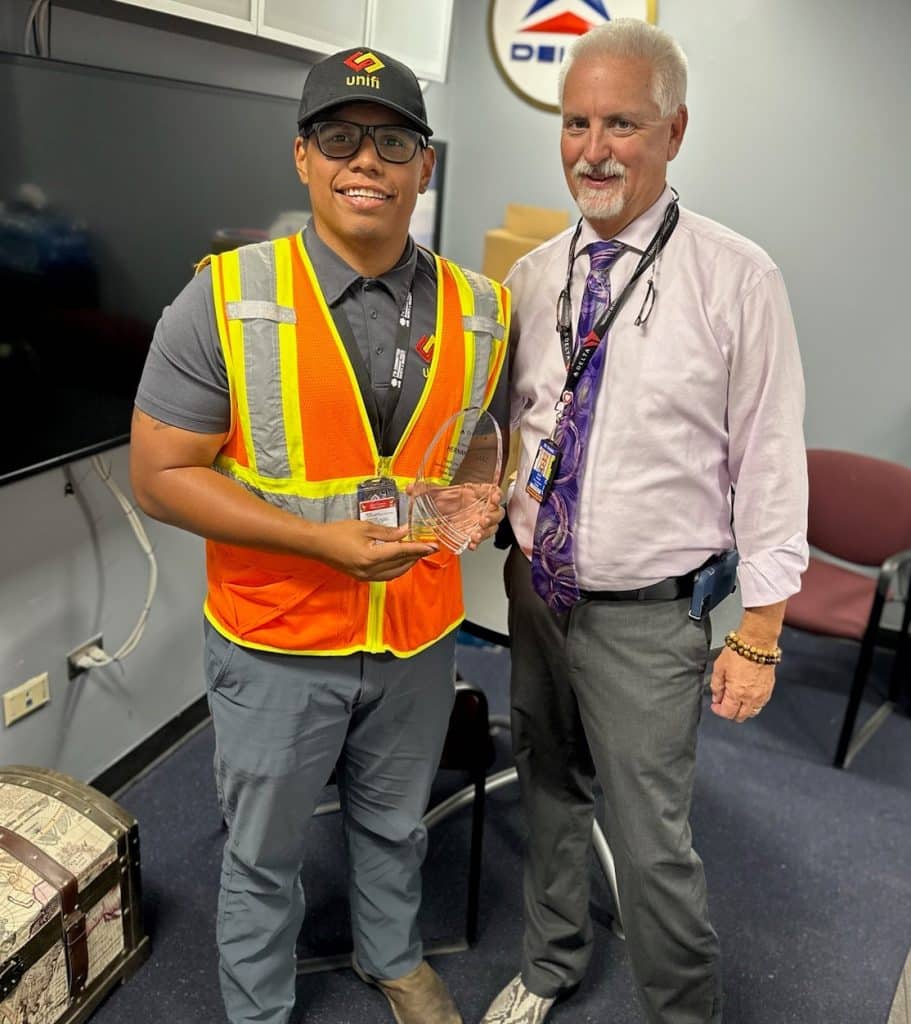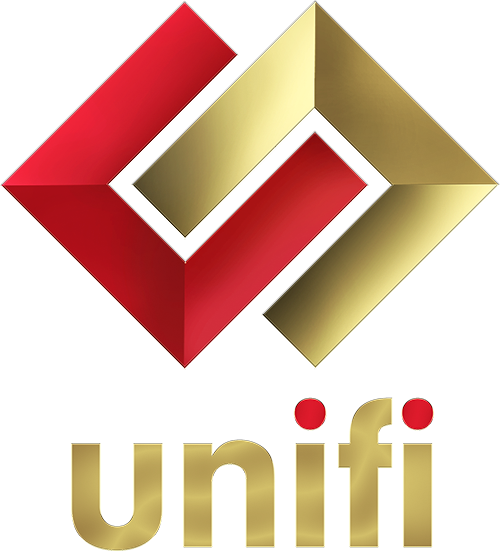It was a typical morning at the Charlotte International Airport for Hernando Sanz and his team. Sanz leads Unifi’s team of roughly 150 employees who support Delta Air Lines’ below-wing operation at the airport. By 8:30 am, when some people were still waking up, the early morning crew had already had their coffee and assisted with the arrival of a few flights. Ten minutes later, their typical morning was anything but. That’s when the call came in from dispatch about Delta flight 1092.
“We got a call that Flight 1092 was planning on doing a controlled crash landing due to the nose gear malfunctioning,” says Sanz. “Before that, it was just a typical morning – getting ready like we always do for Atlanta inbound flights, and we do about 10 of those a day, so when this call came in, we had to act fast.”
The flight landed at 8:58 am on its back tires – the nose gear didn’t deploy.
“The Delta team and our team connected even before the landing, and we set out to notify airport authorities and the fire department. There were a lot of moving pieces, and we needed to ensure we communicated the right information to the right people, so a command center was also established.”
Thankfully no one was hurt.
“Once we knew crew and passengers were safe, it was a sigh of relief, and then we got to work.” Sanz and his team jumped into action quickly, working with a cross-organizational team of Unifi, Delta, and airport officials to ensure continued passenger safety and mitigate disruption to airport operations.
“The flight attendants deployed the slides for the passengers to evacuate, and emergency response teams – paramedics and the fire department were on the runway to make sure they were all okay,” said Sanz. “Delta took the lead on establishing a command center and passenger care. I wanted to ensure my team, and I could support and take on some responsibility.”
As a leader, Sanz’s job was to keep his team from getting distracted by the noise and activity surrounding the incident. When passengers and crew evacuated the plane, they had to leave all their things behind. Sanz organized a go-team led by his performance manager along with four agents who took point on getting those personal belongings and luggage off the flight, transporting them back from the runway, and creating a process to return everyone’s items to them as quickly as possible.
“We had our go-team ready with supplies and a plan for baggage retrieval, but we had to wait for maintenance to clear us before we got on the aircraft, and I just remember it was a super-hot summer day. The passengers had already been bused to the airport and were on standby until we had the green light to get on the plane.”
The team was allowed to get on the flight at 11 a.m. – more than two hours after the landing. “We rigged a system on the fly with literally giant trash bags, sharpies, and labels because, as it turns out, there is no playbook on how to deal with this piece of it,” says Sanz. “How do we get everyone’s things and then get it back to them? It will need to be specific to that airport and its capabilities, so we had to figure out the best way that works for us.”
While all this was happening, Sanz still had to ensure enough staffing for the other aircraft scheduled that day.
“We were short a runway and had 33 other departures we were responsible for that day. In addition, we were assisting maintenance with anything needed for their work on the grounded flight, including sourcing equipment, and delivering it to them — we had to do that. By the afternoon, Delta executives and its investigative team started arriving, the chief pilot for the 717 came in – and we had to escort all of them to and from the ramp and make sure they had safety vests on.”
Sanz says escorting leaders to and from the site was time-consuming because many people needed to be taken to the aircraft and other areas below-wing.
“All said and done, I think our day ended around 10 p.m. – and for me, it was recognizing there was a lot of attention on this and making sure I delegated and gave everyone specific tasks to keep them focused and to keep our daily operations running smoothly,” says Sanz.
“One of the important things for me was keeping our leadership updated with what was happening all day, and I feel like I did an excellent job with that. I kept them constantly looped in on what was happening on the ground.”
And leadership at Unifi agrees: “Sanz is a strong leader who is passionate about our operations, as well as supporting and mentoring his team,” says Jenn Rosage, regional manager, and Sanz’s supervisor. “One of his strongest attributes is critical thinking, which is what cements the relationship between his team in Charlotte and our business partners. Sanz and his team have earned the trust of the customer, allowing for consistent and seamless collaboration. We are so fortunate to have Sanz at Unifi.”
Nearly a month after the controlled crash landing, Delta recognized (and surprised!) Sanz with a leadership award.
“I knew Delta leaders were coming, and I met with them earlier in the day to discuss operations, and then they asked me to join them again during lunchtime, and I just thought maybe they had more questions or wanted a tour, but they gave me the award and said how appreciative they were of my role from that day.”
Sanz says he credits his team as well as teamwork.
“My team did an incredible job that day. It was one of those events where we had to work with our customers as one team – at that moment, it wasn’t about Delta or Unifi – just all of us working together,” says Sanz. “Because when you first hear crash landing, you think, oh man, how serious is it, and you don’t want to lose anyone. Once it was clear everyone was okay, everything else became easier to navigate, but that safety piece was number one.”





